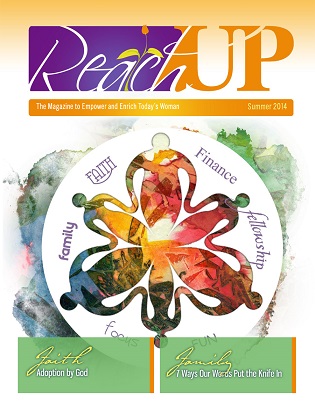Listen Now
Although you may not want to admit it, some days it seems too much to care for all the needs of your children. And you silently wonder, What’s the big deal? If I give them food, why do I have to bother with anything else? I’ve got my problems to get right before I can help anyone else.
Or, maybe you’re taking care of a child who has you at wit’s end. You’ve tried everything, but they still misbehave and drive you crazy.
After learning about a seminar where our author spoke about raising children with RAD, we asked her to write on the subject. Reach UP does not encourage you to label or diagnose your child, but these tips can help give understanding why and how to deal with difficult children.
 I have been bit, scratched, punched, kicked, and spit at more times than I can count. I have been told that I am not fair, that I hate my children, and that I am a horrible mother. I have been lied to, had thousands of dollars of property damaged and destroyed, and been stolen from. I have found countless slices of bread, bags of candy, and juice boxes hidden under beds and smashed into dresser drawers. I have been screamed at for hours on end. I have carried out more than one child who has lost control in a public place, and ushered more than one in to say he was sorry for stealing something while we were there. I have had to cancel playdates, stay home when I wanted to go out, and explain to countless babysitters why my child would threaten them for something that seems completely unimportant. If I’m being honest with you, there are some ugly days at the Homan house.
I have been bit, scratched, punched, kicked, and spit at more times than I can count. I have been told that I am not fair, that I hate my children, and that I am a horrible mother. I have been lied to, had thousands of dollars of property damaged and destroyed, and been stolen from. I have found countless slices of bread, bags of candy, and juice boxes hidden under beds and smashed into dresser drawers. I have been screamed at for hours on end. I have carried out more than one child who has lost control in a public place, and ushered more than one in to say he was sorry for stealing something while we were there. I have had to cancel playdates, stay home when I wanted to go out, and explain to countless babysitters why my child would threaten them for something that seems completely unimportant. If I’m being honest with you, there are some ugly days at the Homan house.
We have ten children, six of whom are adopted. Messy is our middle name. Noisy, busy, and sometimes stinky could all describe us too. With every child we adopt, we learn more and more that what happens at the very beginning of a child’s life matters. Children need someone to connect to, and for many of our children, there was no one. The results of that are heart-breaking.
This kind of neglect can result in a condition now titled Reactive Attachment Disorder or RAD. It is most common in children who have not had someone to attach to in their early years. If a child (even as young as a newborn baby) has felt unwanted, overlooked, or been left to fend for themselves, a seed of distrust can grow into a fear of trusting anyone. This can then lead to a child who does whatever they have to do to survive and take care of themselves. They might steal, hide food under their beds, destroy property, be unwilling to share their toys, or always want more and never be thankful. And if they don’t get their way, children with RAD can become very upset and even violent.
So how do you love a child who is broken? The same way we love the unbroken one.
- Love No Matter What. We all make mistakes. Children need to know it’s okay to make a mistake. They need to know that you will still love them even when they mess up. Remind your child everyday through kind words, notes in their lunchbox, or hugs on the way out the door that you LOVE them and nothing can change that.
- Forgive. Forgive. Forgive. RAD children get in trouble a lot — at school, at home — everywhere. If you get angry and hold it against them, you won’t be able to help them. So forgive, forgive, and then forgive again. We all need forgiveness. (Ephesians 4:32)
- Keep Your Promises. Every time you make a promise and keep it, you show your child you are trustworthy. And the more they trust you, the more they will let you into their heart.
- SEE Them. Do you know your child’s favorite color? Their favorite sport? Favorite doll? Favorite t-Shirt? Get to know your child and get involved in what they like. Not sure what they like? ASK THEM! Children love to share who they are with their parents!
- Don’t React. Respond instead. I was at the store years ago and my son was screaming at me as I pushed him in the cart. With every kick of his feet and wave of his arms, I felt more and more embarrassed. What would people think of me? I could feel my anger boiling inside. I was getting more and more upset. I started to tear up. And then God spoke to me, “Niki, you can’t control how he’s acting, but you can control how you respond.” So, breathe. Pray. And then, only when your emotions are under control should you respond.
 So remember, family can be messy, but never forget that family is WORTH IT.
So remember, family can be messy, but never forget that family is WORTH IT.
Research more at:
www.helpguide.org
Search “Reactive Attachment Disorder” for a good definition of symptoms, therapies, etc.



